Opinion
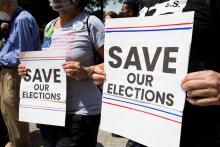
The filibuster, a rule that has typically been used by minority parties to delay or block legislation, often by making long speeches, can easily seem like an arcane and distant issue. While there is a compelling case to end the filibuster, that will be difficult to near impossible any time soon. But the Senate could act with urgency to suspend the filibuster for bills that directly address voting rights and democracy reform; doing so may be the last hope in the short term to strengthen our democracy and prevent future elections from being stolen.
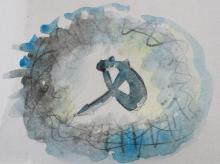
A recent report by Stop AAPI Hate, Brigham and Women’s Hospital, and the Asian American Psychological Association found that Asian Americans who have experienced racism are more stressed by anti-Asian hate than the pandemic. Further, it found that 1 in 5 Asian Americans who have experienced racism show signs of racial trauma.
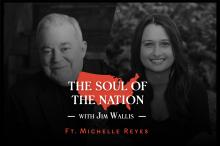
Vice President of AACC and author, Michelle Reyes, author and vice president of Asian American Christian Collaborative, speaks with Rev. Jim Wallis about her new book Becoming All Things: How Small Changes Lead To Lasting Connections Across Cultures. Reyes discusses the Christian community and the uprise of targeted hate crimes against the AAPI community in America.

More than usual this past week, I've needed small reminders about the possibility of justice. Why? Well, this week is the week of the 100th anniversary of the Tulsa Race Massacre.

This week, we marked the 100th anniversary of one of the most horrific moments in American history: On May 31, 1921, white mobs burned to the ground the Greenwood District in Tulsa, Okla., an area commonly known as Black Wall Street. White neighbors killed Black residents in what became known as the 1921 Tulsa Race Massacre. That story — and many other accounts of Black success and self-determination confronted by malice, terrorism, and destruction — are hidden in the corners of history’s closet by a dominant culture that prefers silence over truth-telling.
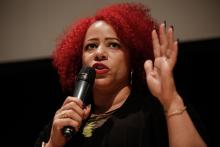
For the board of trustees at UNC-Chapel Hill, Hannah-Jones is a living memorial, a journalist who will tell us what happened, who holds up memory and urges us not to look away.
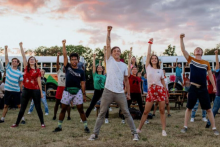
Despite all the outsized power and privilege white evangelical communities hold, there is a dearth of spaces where people can process what it means to have grown up in the belly of it. Fortunately, there’s a whole slew of new films and documentaries that focus on white evangelical youth culture, offering some of us the chance to reflect on our upbringings as we figure out what it means to have white evangelical roots in a post-Trump world.

My professors in journalism school taught me to avoid passive voice as often as possible. They taught me that passive voice gets in the way of giving readers a clear view of who did what. Passive voice may be innocuously overlooked in many instances (for example, in this sentence, I didn’t tell you who was doing the overlooking), but more often using it risks confusion and obscurity — and these aren’t exactly journalistic values.

Many people in this country — and many others around the world — paid attention. We could not ignore the horror of Derek Chauvin kneeling on George Floyd’s neck for 9 minutes 29 seconds as Floyd cried, “I can’t breathe.” Some of us watched as Floyd lay dying and unresponsive. That horrific moment is forever etched in our memory — and we reached a breaking point. We decried the violence and declared, “enough is enough.”

Creating sacred space, whether in temporary dwellings or permanent homes, is ultimately about constructing community. Community creates safety through mutual care for one another. Often, the political response to unhoused people is instead based on the contrived premise that they are a danger to neighborhoods.
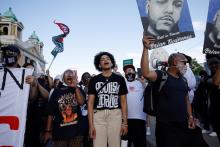
I recently spoke with a good friend who was in the gospel choir with me at Clemson University. He sang. I played drums. During our time there — in between meals and practice and concerts — we felt the suffocation. That suffocation was in between the Black gospel choir and white Fellowship of Christian Athletes meetings, between Black Clemson and white classes. It was not the type of suffocation that kills you; it was the kind that smiles in your face and puts arms around your shoulders and waves hands in praise and sways your body side to side while never getting rid of slaveholding names and memories and theologies. It was the type of suffocation that enjoys the feeling of your presence but fails to embrace the fullness of your humanity.
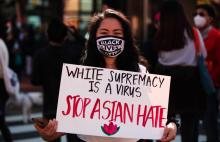
The question is: How do we broaden our bandwidth for advocating with our African American brothers and sisters while also bringing into view what is happening to Asian Americans in this moment? How does this moment continue the entire history of anti-Asian American racism? How can we expose the ways “racial capitalism” has sought to turn “non-white” races against each other?
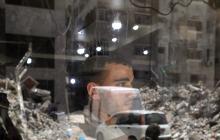
The images of civilian deaths and escalating violence in Israel and Palestine are heartbreaking. As this moral, political, and humanitarian catastrophe continues, we must urge our elected leaders to call for an immediate cessation of the current wave of violence, while also building the political will to interrogate the root causes of the crisis.
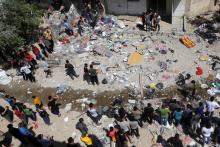
“Pray for the peace of Jerusalem!”
Palestine and Israel are back in the news. So again, we Palestinians hear this common refrain. But such calls are no longer enough. I say this as a pastor who believes in prayer, leads prayer services for peace, and genuinely values your good intentions.

The new CDC guidance has also prompted many pastors and faith leaders to revisit their own masking and social distancing guidelines for worship. But as an immunocompromised person, I want churches to know that if you choose to allow your congregation to unmask now, before we have any sort of herd immunity, you are asking immunocompromised people to choose between risking their lives or being excluded from church.

Rather than reflecting the truth of the motivations of both workers and employers, the "labor shortage" conversation is a tactic to adjust public perception and create the political will big corporations need to capture cheap labor –– it's propaganda at its most straightforward.

As your pastor, I am proud of you. God is proud of you. I can say that without any doubt in my mind. Yes, you have passed your exams, but the pride I am talking about is the hard work and spiritual dedication you’ve put into your own soul and spiritual growth.
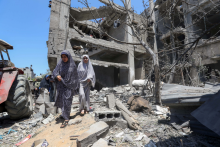
By May 14, reports indicated that at least 122 Palestinians, including 31 minors, had been killed and more than 900 wounded since May 10. In Israel, at least seven people were killed, including one child. While the immediate violence must be brought to an end, the realities of the ongoing Israeli occupation of Palestine cannot be ignored.
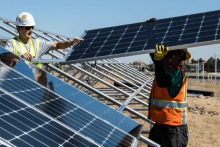
The American Jobs Plan invests in rebuilding our economy, creates millions of good-paying jobs, helps workers transition out of the fossil fuel industry, and protects our health, land, air, water, and global climate.

Biden's plans are not just about good politics or good policy — they’re about what government can do to relieve human suffering, about whom government should invest in. These are not just political matters but ethical ones. So let’s look at Biden’s three big plans from a moral, theological, and biblical perspective.